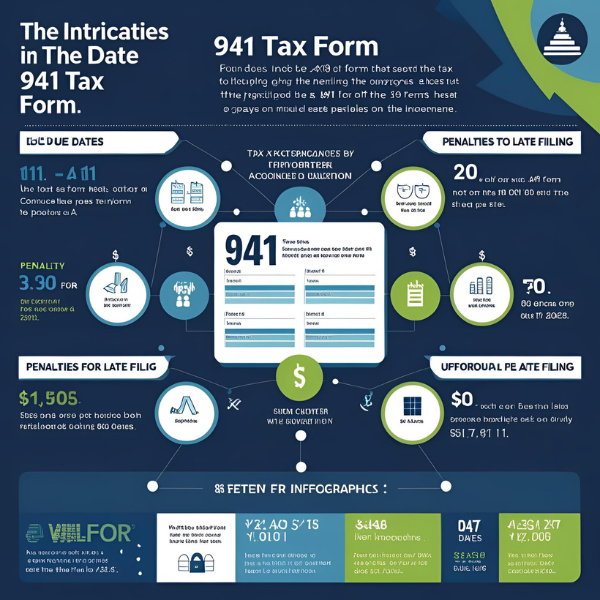
Are Tax Penalties Deductible?
Many people are irritated by tax fines, for which you must avail yourself of reliable and professional tax advisor services. They catch people off guard frequently, leaving them wondering about the potential deductions to lessen the financial hit. The major question is, ‘Are tax penalties deductible?’.
Let’s go into the murky world of taxation to shed some light on the deductibility of these fines.
The Characteristics of Tax Penalties
Before finding out ‘Are tax penalties deductible?’, it is essential to understand tax penalties in detail.
Tax penalties are often incurred due to mistakes or delays in completing tax responsibilities. These penalties can take many forms, including late filing penalties, underpayment penalties, and accuracy-related penalties for errors on tax returns. They act as a discouragement to taxpayers in their efforts to comply with tax regulations and deadlines.
Are Tax Penalties Deductible?
The Internal Revenue Service (IRS) does not deduct most tax penalties. This implies that tax penalties are not regarded as valid costs that can be deducted from your taxable income in the eyes of the IRS.
Exceptions to the Rule
There are a few circumstances when tax penalties may be deducted. One example is when the penalty is associated with a business expenditure. The penalty may be deductible if directly related to a company activity and may be categorized as an ordinary and necessary business cost. However, this deduction is subject to close examination by the IRS.
Individual Penalties vs. Business Penalties
Individual fines for late filing or underpayment are normally non-deductible. The IRS views these fines as the result of failing to satisfy personal tax responsibilities, which are not deductible.
On the other hand, businesses may have a modest advantage in deducting some penalties if they can establish a clear relationship to their commercial activity.
Penalty Reduction Strategy
While tax penalties are not usually deductible, taxpayers can proactively reduce their occurrence. Penalties can be considerably reduced by timely filing of tax returns, correct reporting of income, and timely fulfillment of tax obligations.
Seeking Relief: Penalty Reduction
Penalty abatement may be available to taxpayers who have accumulated fines owing to good cause rather than deliberate disregard. The IRS provides relief via its First-Time Penalty Abatement (FTA) program or by submitting a reasonable cause request. The financial burden of fines can be reduced if reduction is successful.
What is the penalty for filing taxes late?
Filing taxes late in the USA can lead to significant penalties. The penalty for late tax filing is typically 5% of the unpaid taxes for each month your return is late, up to a maximum of 25%. If you also owe taxes, there’s a penalty for paying taxes late, usually 0.5% of the unpaid taxes for each month the payment is late. Interest also accrues on unpaid taxes. Filing and paying on time is best to avoid these penalties, or requesting an extension if needed. Delays can add up quickly, increasing your overall tax debt and financial burden.
The Bottom Line
Summarizing, ‘Are tax penalties deductible?’, it is concluded that it is a fairly restricted issue in the domain of tax rules. While most tax penalties are not deductible, few exceptions exist, notably for business-related fines that fulfill certain conditions. Understanding the nature of tax penalties, staying in compliance with tax duties, and looking into penalty abatement options can all help to reduce their impact.
When dealing with tax penalties, obtaining help from our best tax consultant Houston is critical. Keeping compliant and proactive in completing tax obligations is the best way to prevent these financial difficulties.
Read More:


